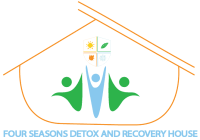Alcohol is one of the most addictive substances in the world – both physically and psychologically – and so it’s no surprise that it’s one of the hardest habits to kick. Whether you’re a person who drinks socially and wants to take a break, or you’re a heavy, daily alcohol abuser who is ready to go through recovery at a detox facility, you can look forward to all kinds of improvements in your physical and mental health.
What is Alcohol?
Alcohol is a depressant drug that’s also called “ethanol”. Ethanol is the key ingredient in beer, wine, and liquor and is used primarily for its intoxicating effects. Alcohol is the most widely consumed intoxicant in the world and, thus, has been throughout history. Also is a toxin, which can cause death if consumed in too high of a quantity, and it’s highly addictive, both mentally and physically.
As we all know, many people consume alcohol on a regular basis. But, some people consume it more excessively or frequently than others, and those people may reach a point when they realize that they need to withdraw, either temporarily or permanently.
As we just said, alcohol is addictive. Because of this, it’s easy to eventually lose a sense of control over one’s relationship with alcohol and even reach a point where the person feels like they require it to feel “normal”, at which point it’s no longer about kicking back and relaxing with a drink or two. Consider taking a break or seeking professional help if addiction is advanced.
What are the Effects of Alcohol on the Body?
How alcohol affects your health, both in the short and long term, highly depends on the amount of alcohol you’re consuming, the frequency at which you’re consuming it, and your overall underlying health. However, alcohol does ultimately affect every system of the body in a way that can lead to major health consequences if left unchecked.
Some of the most common effects of long-term alcohol abuse include:
· Compromised immune system/frequent illness
· Inflammation
· Muscle/joint pain
· Poor digestion/frequent upset stomach
· Anxiety, depression, and other mood disorders
· Poor sleep
· Poor liver health
· Blood sugar dysregulation/diabetes (due to the high sugar content in alcohol)
The Physical Benefits of Taking a Break from Alcohol
Taking a break from alcohol, regardless of the severity of your addiction, can bring about a number of health benefits. Alcohol negatively affects every system of the body when consumed in excess, so naturally, taking a break from it allows the body to repair itself and get back to homeostasis.
The Withdrawal Period
Before we get into the benefits of quitting alcohol, we need to talk about the possibility of withdrawal symptoms. Depending on how serious your addiction and consequential intake were, you may need to undergo professional alcohol detox at a detox facility. But, even if you aren’t at that stage, you may experience some alcohol withdrawal symptoms as your body gets used to no longer consuming it. Keep in mind that advanced addiction requires professional detox to avoid life-threatening symptoms.
Alcohol detox symptoms can last for a couple of days up to a couple of weeks and include:
· Tremors/shaking
· Restlessness/irritability
· Insomnia
· Anxiety/depression
· Fever
· Muscle aches and spasms
· Nausea and vomiting
· Headache
· Diarrhea/upset stomach
· Brain fog
· Sweating/chills
What Happens to the Body When You Stop Drinking?
If you’re ready to start detoxing from alcohol, here are the benefits that you can look forward to in as little as a few days after beginning your journey.
· More Brain Power: Alcohol is a depressant, and over time, it can slow down cognitive function, making a person more foggy, forgetful, unmotivated, and lacking in alertness. Many people notice that once they’re not consuming alcohol regularly, they can focus better and experience increased mental clarity overall.
· Greater Mood: Alcohol causes a rush of dopamine to enter the brain, resulting in a feeling of euphoria. But relying on alcohol for that rush means that your mood can become erratic and unstable. Generally, quitting alcohol means a more stable and generally positive mental state.
· Finer Sleep: Many people find that they fall asleep faster when they’re intoxicated. But, the reality is that the body fails to achieve truly restorative stages of sleep when it’s processing alcohol. Quitting drinking allows your body to get back into its natural sleep rhythm.
Another benefit of alcohol detox:
· Better Digestive Function: Your digestive system will begin to improve once you’re no longer drinking, as alcohol can irritate and inflame the digestive tract, causing symptoms like diarrhea, upset stomach, and excessive gas.
· Better Immune Function: The immune system is compromised when the body is constantly breaking down the toxic components in alcohol. This can mean getting sick more frequently and even being more prone to inflammatory symptoms.
· Improved Liver Function: As we all know, alcohol is very rough on the liver, as the liver needs to work very hard to process it. The result can be the death of liver cells and poor overall liver function.
· Improved Hormonal Health: One of the most overlooked effects that alcohol has on the body is hormonal dysregulation. Which can lead to thyroid issues, mood disorders, and reproductive problems. Quitting alcohol allows the hormones to rebalance themselves.
Tips for Long-Term Success After a Sober Break
Making the decision to quit drinking, and sticking to it, is an extremely commendable endeavor. It’s challenging to quit alcohol due to its addictiveness and ubiquitous presence. Many people suffering from an addiction often face the problem of guilt and shame in recovery. But life improves significantly after detox and withdrawal symptoms. At the same time, we know how challenging it can be to make sobriety a permanent part of your life.
So, how can you better the chances of sticking with your sobriety? Here are some tips that can make all of the difference.
· Know Your Triggers: It’s important to identify your triggers ahead of time, especially in the early days of sobriety. This can mean turning down that weekly bar night with your friends for a while or engaging in stress management techniques to help you manage the urge to drink when certain stressors come up.
· Change Your Lifestyle and Routine: It may be time to take bigger steps in changing your life around to support your newly sober day-to-day. Focus on health and healthy outlets, such as creative activities or sober socializing, instead of drinking. It may even mean having to take a break from heavy drinkers in your life – and that’s okay.
· Explore Psychotherapeutic Options: Alcoholics are more likely to abstain from alcohol if they seek psychological help in the form of therapy. This can aid in developing coping skills for stress, anxiety, or depression, reducing the likelihood of turning to alcohol.
· Consider Group Therapy: Newly sober individuals have access to various resources, including group therapy with fellow recovering alcoholics. This can offer a circle of support that you can rely on during more difficult times.
Discover the Remarkable Transformation Unleashed by Quitting Drinking Today!
If you feel like your relationship with alcohol is no longer in your control, it’s time to consider taking a break from drinking seriously. The good news is that there are professional resources to help you change your life for the better, with licensed addiction experts who can help you recover from alcohol abuse while guiding you through the withdrawal process and helping you get your life back on track in the long term.



